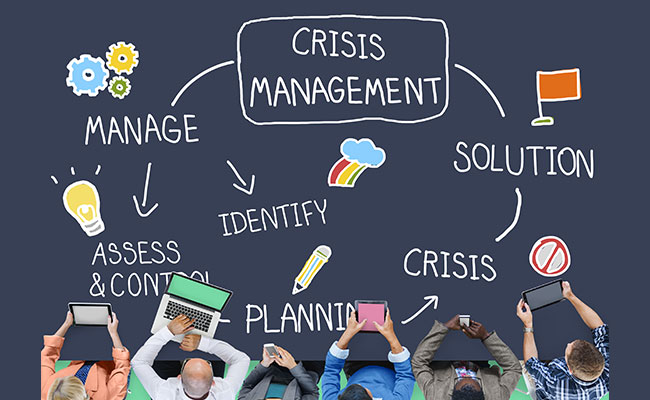
In the world of event planning, success often hinges on meticulous preparation, careful coordination, and an eye for detail. Event organizers invest significant time and resources into ensuring that everything runs smoothly. However, in the dynamic landscape of event management, it’s vital to be prepared for the unexpected. This is called event crisis management. Unforeseen challenges and crises can arise, threatening to disrupt even the most well-organized events.
While you can’t predict every potential crisis, you can certainly prepare to handle them effectively. Event crisis management is a critical skill that every event organizer should develop. In this guide, we’ll explore the art of managing event crises, from preparation and prevention to response and recovery.
The foundation of effective event crisis management is proactive planning. Before your event, dedicate time to identify potential risks and crises that could occur. Consider factors like extreme weather, technical malfunctions, medical emergencies, security breaches, or sudden cancellations.
Risk Assessment: Conduct a comprehensive risk assessment, examining every aspect of your event. This includes evaluating the venue, weather conditions, equipment, food and beverage services, security, and the health and well-being of attendees.
Crisis Response Team: Establish a dedicated crisis response team that includes key personnel from various areas, such as security, medical staff, public relations, and event operations. Clearly define roles, responsibilities, and communication protocols within the team.
Communication Plan: Develop a robust communication plan, ensuring that all members of your team can efficiently communicate with each other during a crisis. Establish a clear chain of command and specify who should communicate with external parties, including attendees and the media.
While you can’t avoid all crises, you can prevent or mitigate most with careful planning and foresight. Here are some strategies to consider:
Weather Contingencies: For outdoor events, have a solid weather contingency plan. Monitor weather forecasts and be ready to make adjustments or evacuate if necessary. Consider renting tents, canopies, or outdoor heaters to ensure the comfort of your attendees in various weather conditions.
Technical Failures: Ensure you thoroughly test all technical equipment before the event. Have backup systems in place to address potential malfunctions, and assign a technical expert to manage the equipment during the event.
Emergency Services: Coordinate with local emergency services to establish clear lines of communication and emergency response procedures. Know the location of the nearest medical facilities and how to contact them.
Security Measures: Implement adequate security measures based on the size and nature of your event. Use barriers, metal detectors, or security personnel to control access and minimize security risks.
When a crisis occurs, your response is crucial to minimizing its impact. Stay calm, and take the following steps:
Activate the Crisis Response Team: As soon as you identify a crisis, activate your response team and ensure everyone knows their roles.
Communication: Notify attendees and staff about the situation, the steps you’re taking to address it, and any safety instructions. Use multiple communication channels, including public address systems, text messages, social media, and event apps.
Media Relations: Designate a spokesperson to communicate with the media, ensuring that information is accurate and timely. Be prepared to address questions and concerns from the media professionally.
Once the crisis is under control, it’s time to focus on recovery and evaluation:
Support Attendees: Provide support and assistance to attendees who may have been affected by the crisis. Medical personnel should be available to tend to injuries, and counseling services may be offered for emotional support.
Reevaluation: After the event, conduct a thorough debriefing and evaluation of your crisis response. Then, identify what went well and areas that need improvement. Finally, use this knowledge to update your crisis management plan for future events.
It’s often beneficial to learn from real-life event crises and how they were managed. Here are two case studies to illustrate the importance of effective crisis management:
Case Study 1: Astroworld Festival (2021) – Houston, Texas, USA
The Astroworld Festival, headlined by rapper Travis Scott, made headlines due to a crowd surge tragedy and the reported death of ten people. A massive crowd rush during the concert resulted in multiple fatalities and injuries. This event crisis prompted discussions about crowd control, event security, and performer responsibility.
Case Study 2: Soweto Wine Festival (2020) – Johannesburg, South Africa
The Soweto Wine Festival faced challenges in 2020 due to the COVID-19 pandemic. With restrictions on gatherings and concerns about public health, the festival had to adapt quickly. Event organizers pivoted to a virtual format, offering wine tastings and entertainment online, demonstrating agility in the face of the unexpected.

While crisis management may not be the most glamorous aspect of event planning, it’s a vital skill that can make or break an event’s success. By prioritizing preparation, prevention, and a well-structured crisis response, event organizers can navigate unexpected challenges effectively. Remember that every crisis is an opportunity to learn, adapt, and improve your crisis management strategies for future events.
As you embark on your event planning journey, consider crisis management an essential component of your skill set. Handling the unexpected with professionalism and efficiency will not only ensure the safety and satisfaction of your attendees but also safeguard your reputation as a competent event organizer.
In the ever-evolving world of event hosting, the ability to manage crises sets you apart as a reliable and responsible professional. Equip yourself with the knowledge and skills needed to face the unexpected confidently, and your events will shine, even in the face of adversity.